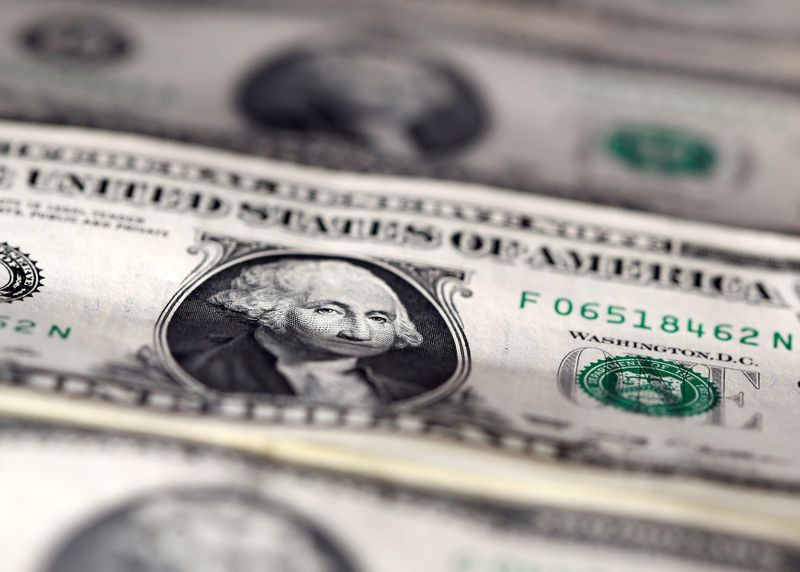By Tom Westbrook
SINGAPORE (Reuters) - The dollar held its own on Thursday as rising Sino-U.S. tension put crushing pressure on the Chinese yuan and proved a counterweight to optimism about the coronavirus recovery.
The escalating war of words between the world's two biggest economies also spilled over to the Australian and New Zealand dollars, as a far more cautious mood holds in currency markets compared with the ebullience rallying stocks.
Hong Kong is the newest flashpoint, with U.S. Secretary of State Mike Pompeo saying on Wednesday that China's plan to impose laws there was "only the latest in a series of actions that fundamentally undermine" the city's autonomy and freedoms.
The Chinese yuan
The Aussie and kiwi backed off two-month highs hit in the London session and were becalmed, even as the re-opening of the world's economies kept stock markets rallying. The Aussie
"Overall, the macro story is hard to ignore, and things are picking up," said Jason Wong, senior market strategist at BNZ in Wellington.
"But down under, here, obviously China is an important part of what drives markets. Markets are awaiting China's response (on Hong Kong) and we're caught in the middle a little bit."
A Financial Times report which said coal traders and analysts expect China to tighten import rules also weighed on the Australian dollar, he said.
Tensions have flared between Australia and China over the COVID-19 pandemic, while U.S.-China relations have nosedived amid regular attacks from the Trump administration over China's handling of the virus.
The United States is currently crafting a range of options to punish China over its tightening grip on Hong Kong, including sanctions, tariffs and restrictions on Chinese companies, according to people familiar with the discussions.
Elsewhere, the dollar was marginally firmer against the Japanese yen
Against a basket of currencies (=USD) it was steady at 98.863, a fraction above a two-month low hit overnight.
The euro (EUR=) rose to an eight-week peak of $1.1031 on Wednesday, climbing above its 200-day moving average, after the European Union's executive unveiled a 750 billion euro plan to prop up the bloc's virus-hit economies.
It pulled back as doubts over the way forward in achieving the plan emerged and last sat at $1.1021. The pound
"It is probably too early to say that the rally in the euro is the start of a major re-rating of European risk," said Chris Turner, global head of markets at ING, in a note.

"The path to getting (the) recovery fund carved out of the long term EU budget will be a bumpy one ... thus it is hard to make the case that euro moves higher in a straight line from current levels."